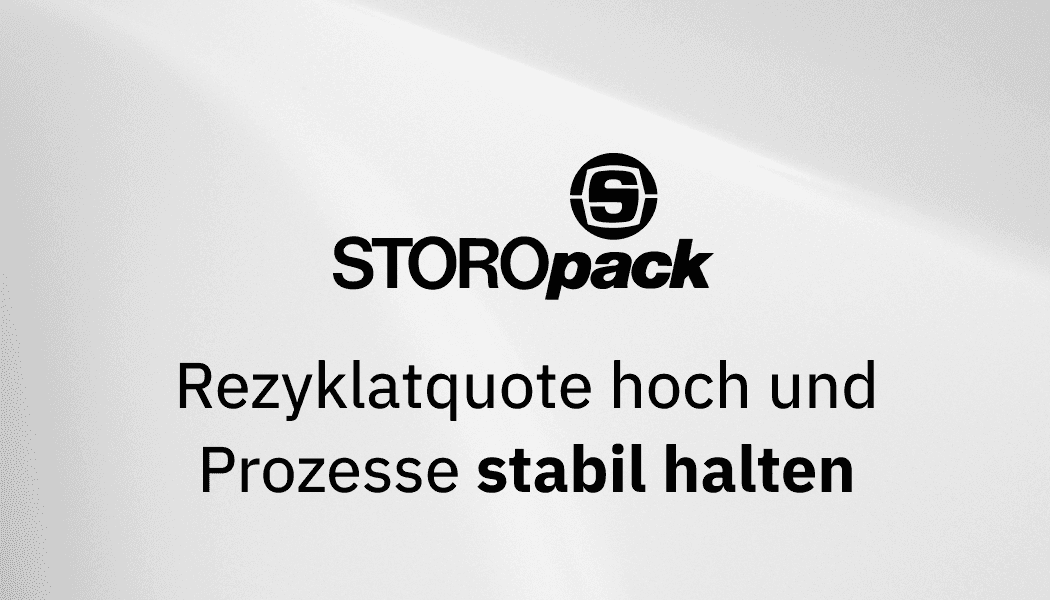How Storopack ensures stable processes despite increasing complexity
|
|
|
Key Take-Aways
In extrusion processes, the increased use of recycled materials leads to a higher process complexity.
Therefore, it is necessary to monitor many process variables simultaneously and continuously.
Operating multiple machines poses a special challenge for employees in this environment, especially when the facilities are spatially separated.
Live dashboards can visualize many process variables of several manufacturing processes and provide them at different locations.
Storopack: Extrusion with High Recycled Content
Storopack Deutschland GmbH + Co. KG, based in Metzingen, is a globally active family business and a leading provider of packaging solutions and customized molded parts.
As part of its sustainability strategy, Storopack has set the goal of increasing the share of renewable raw materials from already 33% today to 50% by 2025.
The Storopack plant in Wildau near Berlin, which we have been collaborating with since the end of 2022, manufactures, among other things, air cushion film for the shipping of goods. This is already offered in variants with 50% and 100% recycled content.
The production of air cushion film at the Storopack plant in Wildau takes place in a two-stage process. First, a blow film extruder produces a plastic film from granulate. All components are initially mixed and melted in the extruder screw and then blown into a film through a nozzle. In the second process step, known as configuration, the film is processed into finished air cushion film.
Challenge: Fluctuating Quality of Recycled Material Leads to Process Instability
The extrusion process depends on a variety of influencing factors that need to be mastered. These include parameters such as pressures, temperatures, the speed of the extruder screw, and the raw materials used.
While the quality of the raw materials was usually constant within a batch in the past, today there are more frequent inhomogeneities and impurities due to the increased use of recycled materials.
When these fluctuations in material quality occur, a well-adjusted process can suddenly become unstable. In the specific case of blow film extrusion, there is then the danger of a so-called hole fall, a rupture of the film bubble. The entire process must then be stopped and restarted, which regularly leads to scrap and downtime.
To ensure process stability even when extruding recycled materials, it is necessary at Storopack to continuously monitor process parameters during production.
Status Quo of Process Monitoring at Storopack Constant Monitoring of Multiple Plants is Not Possible
At Storopack in Wildau, the extrusion processes are currently monitored using the displays of the operator terminals (HMI) directly at the facility.
On these displays (similar to the one in the image), the current values of some process parameters are shown as numbers. However, for successful process monitoring, an employee would need to check the displays of multiple plants every minute.

But in most operations, this is unrealistic: employees need to attend to other tasks such as quality control and cannot possibly be at all facilities at the same time. Especially when the facilities are located in different halls and are several hundred meters apart, as is the case with Storopack.
A continuous observation of all important parameters at all extrusion facilities is therefore not possible with this approach.
No Historical Data for Traceability
If disturbances or anomalies occur during production, it has so far been possible to export the time series data of process variables from the control system.
However, only data from the last 7 days is available. This means that analyses are only possible if the data for the relevant period has been exported in time. On the other hand, it is not possible to directly compare data from a notable production order with an ideal order from the past.
To improve their capabilities in monitoring extrusion processes and to better analyze process data of all relevant parameters in case of problems, Storopack in Wildau has decided to digitize their 6 extrusion plants with ENLYZE, monitoring them via hall screens and storing data indefinitely for traceability.
Process Monitoring with ENLYZE
Since the integration of ENLYZE into Storopack's production, ENLYZE's edge devices continuously record more than 7,000 process variables and permanently store them in the ENLYZE Manufacturing Data Platform.
From there, the data can be made available in real-time, either in the ENLYZE app with its many functions for process optimization and analysis or in third-party systems, such as the dashboarding tool Grafana.
With Grafana and the data from ENLYZE, Storopack can easily create dashboards and provide them on hall screens.
A dashboard like the one shown below can be placed at various locations on the factory premises in Wildau. This allows employees to keep an eye on the extrusion processes when they are at the facilities on the other end of the plant.

Using the dashboards, employees at Storopack in Wildau can see within seconds whether the extrusion processes are running stably. Any disturbances and irregularities can thus be detected earlier, significantly reducing the reaction time to initiate countermeasures.
Conclusion: Stable Processes Despite Recycled Material, and Optimal Data Situation for Process Optimization
The dashboards from ENLYZE improve the capabilities for continuous process monitoring in extrusion at Storopack in Wildau compared to the initial situation.
On the one hand, this reduces costs for downtime and rework. On the other hand, the dashboards also reduce the workload of employees during trouble-free operations, as they no longer need to move as frequently between production areas to monitor processes with multiple machine operation.
The dashboards thus make a valuable contribution to ensuring the controllability and efficiency of extrusion processes at Storopack despite increasing complexity.
Read more





